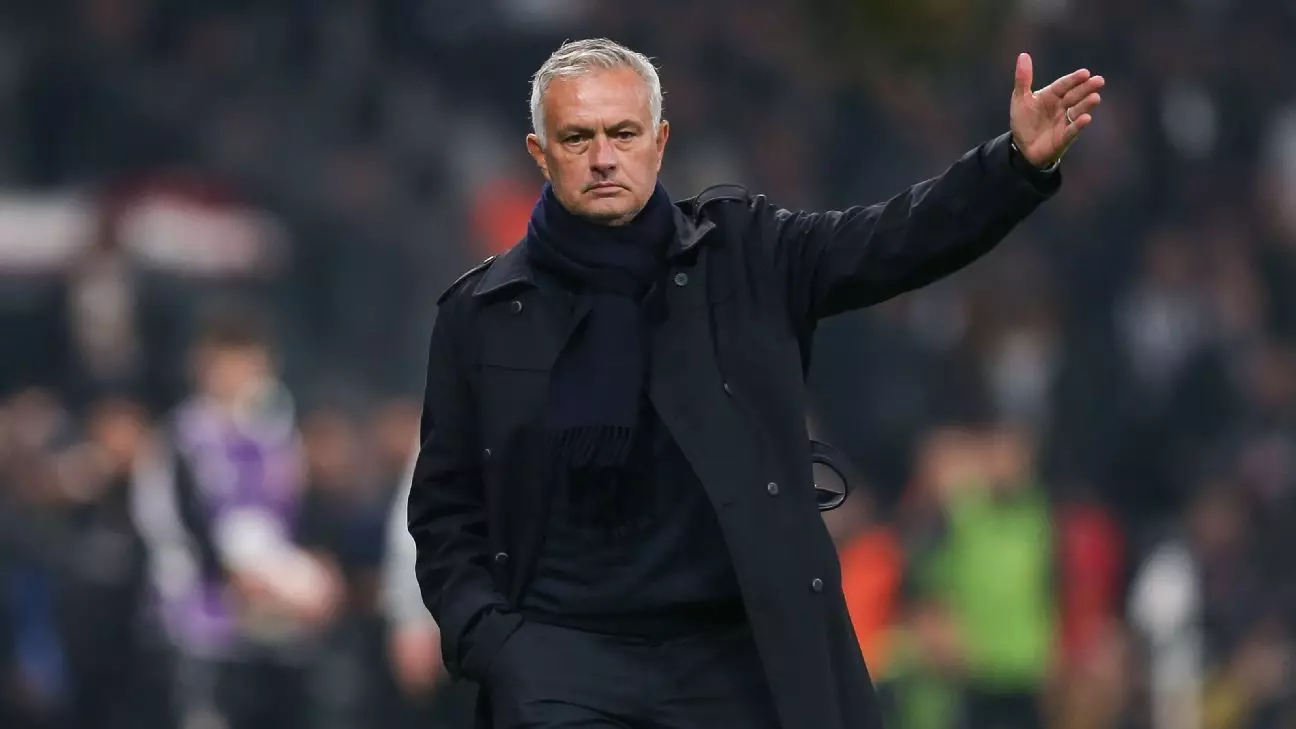In the world of football, few rivalries have ignited as passionately as that between José Mourinho and Pep Guardiola. Their competitive spirit, borne from contrasting philosophies and starkly different managerial styles, has captivated audiences over the years, especially during Mourinho’s tenure at Real Madrid from 2010 to 2013. Recently, this rivalry was thrust back into the limelight as Mourinho responded to Guardiola’s comments about Manchester City, showcasing their ongoing feud and the underlying themes of justice and fairness in the sport.
Mourinho, currently at the helm of Fenerbahçe, addressed Guardiola’s insinuation that he harbors a desire for Manchester City to be relegated, denying such claims and emphasizing a more principled stance. He articulated his position, asserting that he is merely advocating for fairness in football rather than wishing ill on a rival team. This sentiment resonates with many supporters who are concerned about the apparent disconnect in how football clubs are treated with regard to financial regulations. The backdrop of this renewed rivalry lays bare the complexities surrounding financial fair play within the football ecosystem.
At the heart of Mourinho’s comments lies an essential debate about financial fairness in football. He highlighted the disparity between small clubs punished for minor financial infringements compared to larger clubs, which, as he claims, often find ways to circumvent the rules with relative impunity. This inequality not only affects competition on the field but also shapes the very fabric of the footballing community. Mourinho’s reference to his time at AS Roma, where he faced significant constraints, underscores the struggle that many coaches face when they adhere strictly to financial regulations while feeling overshadowed by wealthier clubs.
Guardiola’s tongue-in-cheek response, referencing a fictitious outcome that would see City relegated to lower leagues, hints at the defensive posturing often taken by successful clubs under scrutiny. It’s a shield against accusations that larger clubs operate above the rules designed to maintain competitiveness — rules that, ironically, are often established to protect the structure of the game itself.
The emotional layers embedded within Mourinho and Guardiola’s exchanges raise interesting questions about personal feelings in professional contexts. While Mourinho asserted that there are “no problems” between the two, his comments suggest a sharp division in how both men perceive accountability and responsibility in football. Mourinho’s assertion of his admiration for Guardiola, coupled with a clear critique of the inequalities in the sport, illustrates the multidimensional nature of their rivalry.
Guardiola, for his part, has made it clear that he does not intend to leave Manchester City to coach another club, hinting at a certain loyalty or perhaps a comfort in his current position. His reluctance to engage further with Mourinho’s taunts may reflect a desire to rise above the noise — a tactical move often seen in experienced managers who understand the ebb and flow of public narratives.
What emerges from this ongoing conflict is a profound insight into the passion driving the game itself. Both Mourinho and Guardiola are not merely managers; they are representatives of football’s ethos and its unrelenting drive for fairness and integrity. Mourinho’s declaration that he is “just a football man” resonates deeply, emphasizing a shared love of the game that transcends professional rivalries.
In football, and particularly in high-stakes environments, the dialogue often shifts from tactical discussions to broader ethical considerations. The sporting world values fairness, integrity, and the beauty of competition, and when these elements are perceived to be jeopardized, voices like Mourinho’s rise up to remind us of their significance.
The exchange between Mourinho and Guardiola illuminates critical themes in modern football: the quest for justice and equality, the emotional ties that underpin professional relationships, and the intricacies of accountability in football’s financial landscape. As these two titans continue to navigate their storied rivalry, it becomes increasingly evident that the ultimate goal is not merely victory on the pitch but a deeper commitment to fairness and respect within the beautiful game.

Leave a Reply